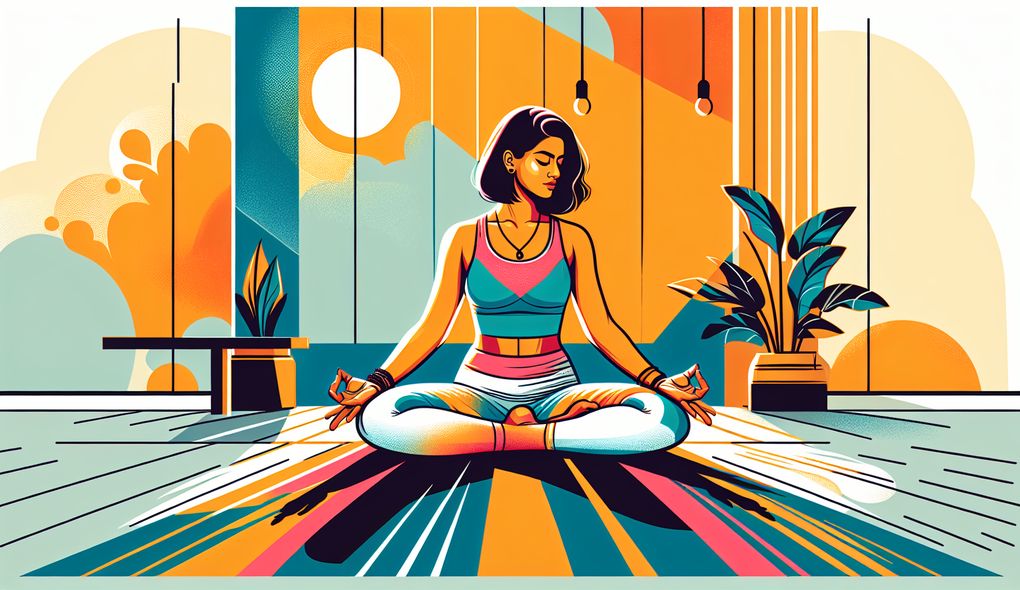Tell us about a time when you had to make changes to your yoga class plan on the spot. How did you adapt?
SENIOR LEVEL

Sample answer to the question:
One time during a yoga class, I had planned to teach a challenging arm balance pose. However, upon observing the class, I noticed that many students were struggling with basic balancing poses. Instead of proceeding with my original plan, I decided to adapt the class on the spot. I shifted the focus towards strengthening the core and improving balance by incorporating a series of standing poses and modifications. I used props like blocks and straps to support students who needed assistance. I also provided verbal cues and demonstrations to ensure everyone understood the proper alignment. By making these changes, I was able to create a more inclusive and accessible class that met the needs of all the participants.
Here is a more solid answer:
I recall a particular instance during a yoga class when I had to make impromptu changes to the lesson plan. The class was focused on advanced inversions, but as I started the session, I noticed that a significant number of students were struggling to maintain proper alignment in basic standing poses. Recognizing the importance of building a strong foundation, I immediately adapted the class to address their needs. I shifted the focus towards grounding and stability by incorporating a series of standing poses that targeted core strength and balance. I provided detailed instructions on alignment and encouraged the use of props like blocks and straps to support those who required assistance. Throughout the class, I emphasized the connection between breath and movement, guiding the students to stay present and mindful. By making these on-the-spot modifications, I was able to create a more inclusive and supportive environment that allowed all participants to engage in a practice that was safe and accessible for them.
Why is this a more solid answer?
The solid answer includes more specific details on how the candidate adapted the yoga class plan on the spot. It highlights their ability to recognize the needs of the students and make immediate changes to meet those needs. The answer also addresses the evaluation areas by mentioning the candidate's knowledge of yoga techniques and philosophy when incorporating grounding and stability poses, their instruction and demonstration skills in providing detailed alignment instructions, and their ability to connect and communicate with students through emphasizing breath and mindfulness. However, it could still benefit from more explicit mention of the candidate's organizational abilities in managing the impromptu changes.
An example of a exceptional answer:
In one of my yoga classes, I encountered a situational challenge that required rapid adjustment of my lesson plan. As the class progressed, I realized that the majority of participants had limited flexibility and were struggling with transitions between poses. Recognizing the importance of adaptive teaching, I swiftly altered the class to provide modifications and variations that catered to their needs. I shifted the focus towards gentle stretches and slower movements, encouraging participants to pay attention to their breath and relaxation. To ensure a comprehensive understanding, I offered verbal explanations and demonstrations of each posture, emphasizing the alignment and the benefits it provided to their specific concerns. Additionally, I incorporated props such as bolsters and blankets to support their comfort and alignment. By altering the class dynamics dynamically, I was able to foster an inclusive and empowering environment, where every participant felt supported and capable of fully engaging in their practice.
Why is this an exceptional answer?
The exceptional answer goes above and beyond in terms of providing specific details and demonstrating the candidate's expertise as a yoga instructor. It not only highlights the candidate's ability to adapt on the spot but also showcases their deep understanding of the participants' needs and their skill in providing appropriate modifications and variations. The answer effectively addresses all the evaluation areas by mentioning the candidate's extensive knowledge of yoga techniques and philosophy when offering verbal explanations and demonstrating postures, their ability to connect and communicate with students by emphasizing breath and relaxation, and their organizational abilities in incorporating props to enhance the participants' comfort and alignment. The exceptional answer is comprehensive and shows a high level of skill and expertise in adapting yoga classes.
How to prepare for this question:
- Reflect on past experiences where you had to modify your yoga class plans on short notice. Think about the specific challenges you faced and the strategies you employed to adapt.
- Familiarize yourself with different modifications and variations for common yoga poses. This will enable you to quickly adjust the class to accommodate the participants' needs.
- Practice effective communication skills, such as clear verbal instructions and demonstrations. Being able to convey your adaptations and modifications to the class is crucial.
- Develop your knowledge of different styles of yoga and their effects on the mind and body. This will enhance your ability to make appropriate changes to the class based on the participants' requirements.
- Stay organized and flexible. Be prepared to adjust your lesson plan on the spot and maintain a calm and composed demeanor when making impromptu changes.
What are interviewers evaluating with this question?
- Knowledge of yoga techniques and philosophy
- Ability to adapt and make changes on the spot
- Instruction and demonstration skills
- Ability to connect and communicate with students
- Organizational abilities

